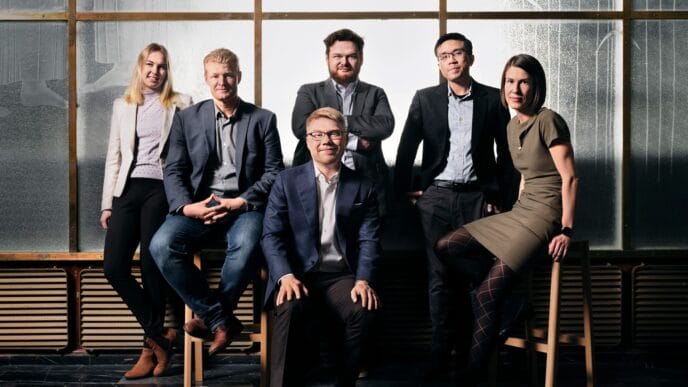Immigrant startup founders are helping redefine what’s possible in the American startup ecosystem. New research from Stanford’s Venture Capital Initiative shows that nearly half of all billion-dollar startups in the U.S. were founded by entrepreneurs born outside the country. That’s not just a contribution—it’s a leading force behind America’s tech and innovation success.
Immigrant Startup Founders Are Driving Billion-Dollar Innovation
Out of 1,078 founders behind 500 U.S. unicorns, 474—about 44%—were born abroad. India tops the list with 90 unicorn founders, followed by Israel (52), and Canada (42). These leaders include Jyoti Bansal of AppDynamics, Daphne Koller of Coursera, and Stewart Butterfield of Slack.
But the trend goes deeper. Founders came from 65 different countries across every continent. Europe brought talent from the UK, Germany, France, and the Netherlands. From Asia, India leads, followed by China, Taiwan, and Japan. Latin America, Africa, and Oceania also contributed rising stars.
These immigrant startup founders didn’t just bring ideas—they brought unique perspectives that helped them see market gaps others missed. For instance, Amr Awadallah from Egypt built Cloudera with insights shaped by global experience, while Luis von Ahn from Guatemala launched Duolingo to democratize language learning.
Moving to the U.S. offers more than just opportunity. It multiplies the chances of startup success. Data shows that startups which relocated to the U.S. saw massive improvements in their odds. Israeli companies were 9 times more likely to reach unicorn status after moving stateside. Indian startups gained a 6.5x boost, and British companies saw a 2.5x improvement.
The U.S. ecosystem—rich in funding, mentorship, and customer access—gives immigrant startup founders a launchpad that few other countries can match. That’s why global teams behind Slack, Unity, and Headspace all chose to plant roots in the U.S.
Global Talent, Local Roots: Where Immigrant-Led Startups Thrive
While California still attracts the majority of unicorns, immigrant startup founders are making strategic choices about where to base their businesses. Startups from Israel often prefer New York, while others relocate to Texas, Massachusetts, or even across state lines once they scale.
Interestingly, 15% of U.S. unicorns have moved their headquarters at least once on the road to reaching billion-dollar valuations. These shifts reflect key business decisions—from access to venture capital to hiring costs and regulatory environments.
The global reach goes far beyond the founders themselves. When Stanford researchers examined 191 unicorns based in California, they found that only 38% of their combined 375,000 employees were located in California. One-third worked in other U.S. states, and the rest were based abroad.
India emerged again, housing 6% of the total workforce across these startups. Eventbrite has 17% of its staff in Argentina. Thumbtack runs 21% of its team from the Philippines. And Evernote relies on 12% of its workforce in Chile. Clearly, immigrant startup founders also build globally distributed teams.
On a per-capita basis, Israel stands out dramatically. It leads all countries with 43.4 unicorn founders per 100,000 first-generation immigrants in the U.S. New Zealand follows with 37.3 and Belgium with 24.4. In contrast, India—despite leading in total numbers—has a rate of 2.5 per 100,000.
These differences suggest that while immigrant startup founders from all backgrounds succeed, each group’s path is shaped by access to capital, education, and professional networks.
Why It Matters: Innovation Thrives on Global Roots
The evidence is clear: immigrant startup founders are not just part of the U.S. innovation engine—they are at the heart of it. Their presence has nearly doubled the pool of high-growth startups, bringing new perspectives, skills, and global reach into America’s tech ecosystem.
For U.S. policymakers, the message is straightforward. Supporting immigration isn’t just about humanitarian values—it’s also a long-term economic strategy. The future of innovation depends on open doors and strong support for global talent.
For founders around the world, the American dream is still alive. Immigrant startup founders continue to prove that with the right environment, a single idea can grow into a billion-dollar success story—regardless of where you start.













